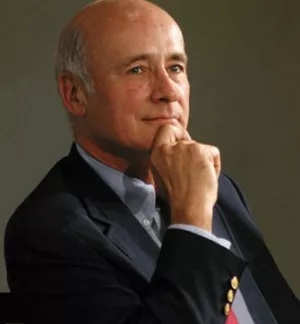Inside the Five-Sided Box: Lessons from a Lifetime of Leadership in the Pentagon
By Ash Carter, Director, Belfer Center for Science and International Affairs; Former Secretary, Department of Defense
Penguin/Random House
June 2019
The Pentagon is the headquarters of the single largest institution in America: the Department of Defense. Yet to most Americans, the dealings of the D.O.D. are a mystery, and the Pentagon nothing more than an opaque five-sided box that they regard with a mixture of awe and suspicion.
In this new book, former Secretary of Defense Ash Carter demystifies the Pentagon and sheds light on all that happens inside one of the nation’s most iconic, and most closely guarded, buildings. Drawn from Carter’s thirty-six years of leadership experience in the D.O.D., this is the essential book for understanding the challenge of defending America in a dangerous world—and imparting a trove of incisive lessons that can guide leaders in any complex organization.
“Everyone knows Ash Carter is one of America’s most respected leaders, but I know firsthand that he is also one of the great technologists of our time. He adeptly used both gifts to make the Pentagon as innovative as possible. This book tells us how he did it, and what he thinks needs to happen in the future.” —Eric Schmidt, Technical Advisor, Alphabet Inc.
Do Morals Matter? Presidents and Foreign Policy from FDR to Trump
By Joseph S. Nye, Jr., Harvard University Distinguished Service Professor
Penguin/Random House
June 2019
In Do Morals Matter?, Joseph S. Nye, Jr. provides a concise yet penetrating analysis of the role of ethics in U.S. foreign policy during the American era after 1945. Nye works through each presidency from Truman to Trump and scores their foreign policy on three ethical dimensions of their intentions, the means they used, and the consequences of their decisions. Alongside this, he also evaluates their leadership qualities, elaborating on which approaches work and which ones do not. Regardless of a president’s policy preferences, Nye shows that each one was not constrained by the structure of the system and actually had choices. He further notes the important ethical consequences of non-actions, such as Truman’s willingness to accept stalemate in Korea rather than use nuclear weapons.
Since we so often apply moral reasoning to foreign policy, Nye suggests how to do it better. Most importantly, presidents need to factor in both the political context and the availability of resources when deciding how to implement an ethical policy.
The Age of Living Machines: How Biology Will Build the Next Technology Revolution
By Susan Hockfield, Member of the Board, Belfer Center for Science and International Affairs
W.W. Norton
May 2019
The world’s population is projected to rise to well over 9.5 billion by 2050, and we are currently faced with the consequences of producing the energy that fuels, heats, and cools us. With temperatures and sea levels rising, and large portions of the globe plagued with drought, famine, and drug-resistant diseases, we need new technologies to tackle these problems.
The Age of Living Machines describes some of the most exciting new developments and the scientists and engineers who helped create them. Virus-built batteries. Protein-based water filters. Cancer-detecting nanoparticles. Mind-reading bionic limbs. Computer-engineered crops.
“Entertaining and prescient....Hockfield demonstrates how nature’s molecular riches may be leveraged to provide potential solutions to some of humanity’s existential challenges.” — Adrian Woolfson, Science
Titans of the Climate: Explaining Policy Process in the United States and China
By Kelly Sims Gallagher, Member of the Board, Belfer Center, and Xiaowei Xuan, former Research Fellow, Energy Technology Innovation Policy Research Group
MIT Press
February 2019
In Titans of the Climate, Kelly Sims Gallagher and Xiaowei Xuan examine how the planet’s two largest greenhouse gas emitters develop and implement climate policy.
Gallagher, a former U.S. climate policymaker, and Xuan, a member of a Chinese policy think tank, describe the specific drivers—political, economic, and social—of climate policies in both countries and map the differences between policy outcomes. They characterize the U.S. approach as “deliberative incrementalism;” the Chinese, meanwhile, engage in “strategic pragmatism.” Comparing the policy processes of the two countries, Gallagher and Xuan make the case that if each country understands more about the other’s goals and constraints, climate policy cooperation is more likely to succeed.
“An insightful analysis of climate change efforts in the United States and China: domestically determined, internationally collaborative, globally decisive.” —Christiana Figueres, former Executive Secretary, UN Framework Convention on Climate Change
— Compiled by Susan Lynch, ISP/STPP
"Hot Off the Presses." Belfer Center Newsletter. Belfer Center for Science and International Affairs, Harvard Kennedy School (Summer 2019).








